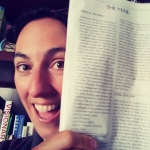From the Field: Puerto Rico Health Center Providing Services, Needs Medication

Left to Right: Alicia Gonzales (NCFH), Gladys Cate (HRSA), Alma Galván (MCN) and Jose Rodriguez (Medical Director at Hospital General Castañer.)
[Editor’s Note: Over the weekend, Jose Rodriguez, MD, Medical Director at Hospital General Castañer and longtime partner of MCN attended the East Coast Migrant Stream Forum, arriving from hurricane-devastated Puerto Rico. Last week, Dr. Rodriguez spoke with MCN’s Alma Galván, MHC by phone. Here is the conversation they had, translated from Spanish and edited for clarity and brevity. Please note that Dr. Rodriguez’s community in Puerto Rico is still in need of medical supplies and donations. See the bottom of the blog post for the address to contribute.]
Alma Galván, MHC: What does the health center look like -- are any buildings damaged?
Jose Rodriguez, MD: Hospital General Castañer was flooded with 1.5 feet of water. We had to close services until last week. Now we are open, but only from 8 to 4 -- not a full shift. We started our staff back at a half shift because we do not have enough diesel for the generator. A lot of people did not show up to work at the hospital because the roads were destroyed. Only the emergency room was open. It has been open the whole time. The physician who was working his shift when the hurricane hit had to work for 72 hours straight.
When we finally reopened, we went to the more remote communities to provide them services and determine what medicines they needed. The people did not have insulin, asthma inhalers, blood pressure medications, so we have been reaching out to the people to examine them and provide medicines. Puerto Rico’s Primary Health Care Association has been there already. The association has people that have visited all over the island.
Galván: Are patients able to receive care at your health center?
Dr. Rodriguez: Adjuntas and Policlinica [two branches of Castañer] are providing full services now -- but they were heavily damaged. The roof of Policlinica was damaged.
Galván: Was it difficult for you to get to Hospital Castañer?
Dr. Rodriguez: It was difficult to get to the hospital because there were no roads. The locals had fixed some alternative routes, so I could get there, but I was only able to get to the hospital because I have a four-wheel drive car. It was very difficult to get in and out.
Galván: Are there any shelters in Castañer?
Dr. Rodriguez: In Castañer, there are no shelters. The government set up two, but one was flooded and the other one had a damaged generator, so, there are no shelters in Castañer.
Galván: Are you seen more diseases in the area?
Dr. Rodriguez: In our service area, we have not seen more diseases, but outside that area, there are outbreaks of conjunctivitis, scabies, and leptospirosis. We are worried about the diseases transmitted by mosquitoes, like dengue, Chikungunya. We are worried about influenza too.
We have been providing services to all people, with insurance or without, if they can pay or not. Anxiety has increased -- it’s an anxiety crisis -- but we have our social workers and psychologist in the streets, they were in the shelters, when we had them, too, providing services.
Galván: What about patients needing ongoing care like those in the midst of TB treatment or requiring dialysis?
Dr. Rodriguez: We don’t currently have any TB patients, but dialysis patients were moved to Aguadilla for care.
Galván: What type of help do you need?
Dr. Rodriguez: We need medicines.
[Dr. Rodriguez named several medicines, and later an amended list was formed. The following are some of the medicines they are still needing.] Rocephin, Cipro, Clindamycin, Ampicillin, Zosyn, Doxycycline, Cephalexin, Humulin, Humalog, Lantus, Zestril, Vasotec, Neurontin, HCTZ, Singulair, Pletal, Plavix, Ventolin HFA, Proventil HFA, Lisinopril , Norvasc, Metformin, Plavix, Flovent.
We placed an order for medicines from the mainland US, but we have not yet received it. Our community has been without communication: no radio, no cell phones. We did not know what was happening anywhere else -- and no money to buy food. Now the banks are operating, but they will only give you 100 to 200 dollars per day. And we have to look for places where the phone signal is good to make phone calls.
We spoke with the electrical utility agency, and they are working to give priority to the hospitals. There are several hospitals that I know of -- maybe around five -- that had to close because of lack of water or electricity.
Please send medicine donations to:
Asociación de Salud Primaria de Puerto Rico
Centro Mercantil Internacional
Carr. #165 Edificio 15
K.m 2.4 Sectro Pueblo Viejo, Guaynabo PR 00965
Like what you see? Amplify our collective voice with a contribution.
Got some good news to share? Contact us on our social media pages above.
- Log in to post comments

